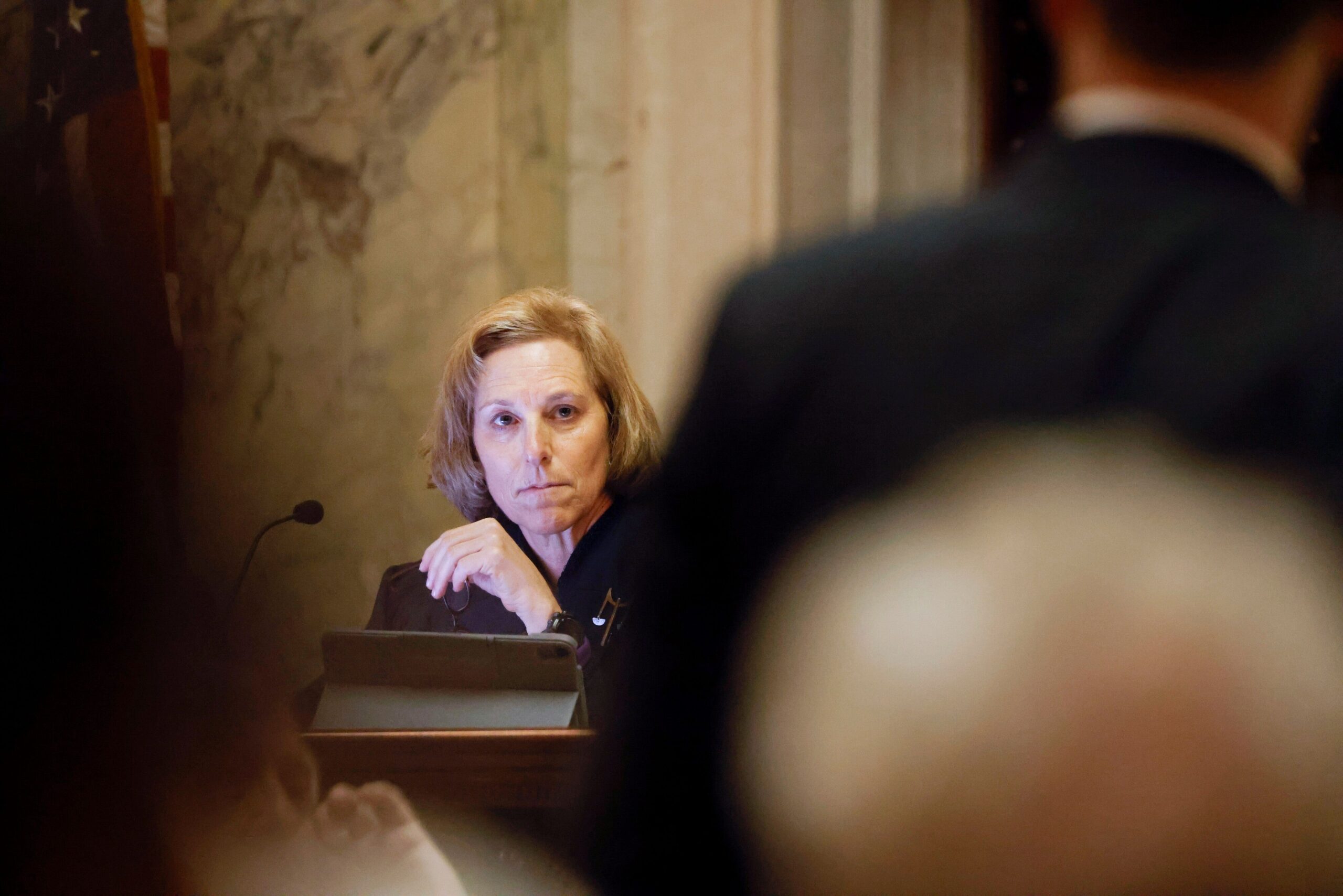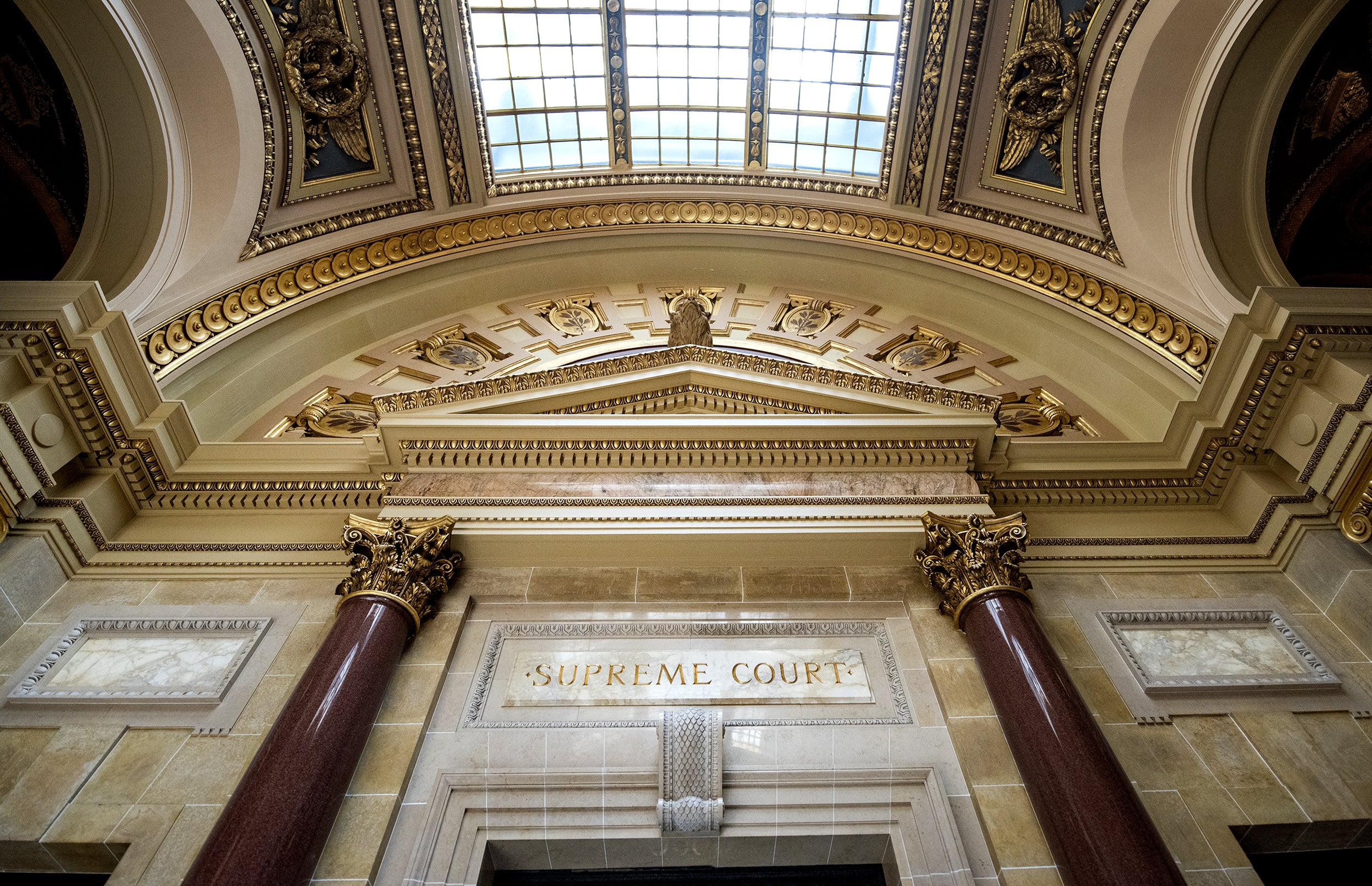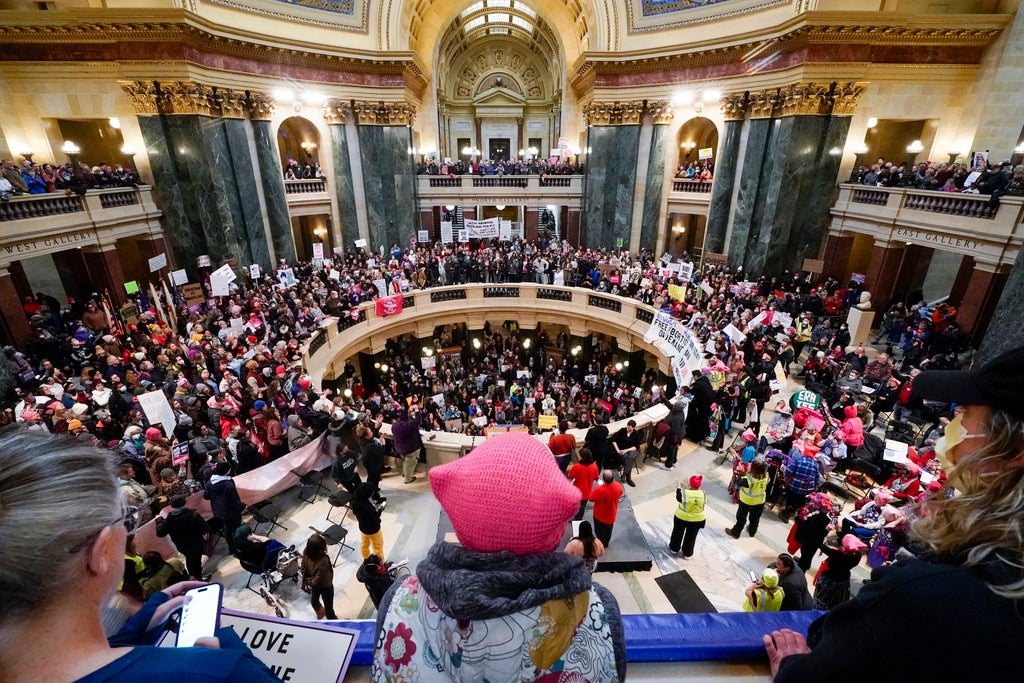The Legislature’s power to block a statewide ban on conversion therapy for LGBTQ+ youth could be reined in if the Wisconsin Supreme Court decides in favor of the governor in a case that had oral arguments Thursday.
It’s the latest clash between the state’s legislative and executive branches, which have fought for power throughout the tenure of Democratic Gov. Tony Evers.
The latest dispute involves the Legislature’s Joint Committee for Review of Administrative Rules, which is a panel of lawmakers from the state Senate and Assembly where Republicans hold a 6-4 majority.
News with a little more humanity
WPR’s “Wisconsin Today” newsletter keeps you connected to the state you love without feeling overwhelmed. No paywall. No agenda. No corporate filter.
Evers contends the committee illegally blocked a rule banning conversion therapy, a practice of attempting to change a patient’s sexual orientation or gender identity that is widely discredited among medical and psychological professionals.
Early in the Evers administration, the state’s Department of Safety and Professional Services proposed banning the practice as part of a code of conduct for social workers, marriage counselors and family therapists. The ban does not apply to religious institutions, which are not licensed by the state.
In 2021, Republicans on the rules committee blocked the ban from taking effect and then used a procedural maneuver to keep the proposal shelved. They introduced legislation that would, in theory, block the ban permanently. But rather than pass it out of the full Legislature and face a governor’s veto, they deliberately never acted on it.
In the next legislative session in 2023, Republicans on the committee again blocked the ban from going into effect by introducing a bill that never went to a vote.
Legislature argues suspension amounts to a ‘grace period’ for rulemaking
In Thursday’s oral arguments, Misha Tseytlin, an attorney for the Legislature, argued that the rules committee’s actions amounted to a “grace period” by which lawmakers could review the policy under their constitutional role. Some justices appeared skeptical.
“Where does the constitution say there’s a ‘grace period’?” Justice Rebecca Dallet asked.
Later, when Tseytlin returned to the same argument, Justice Jill Karofsky responded by saying the idea “just doesn’t make any sense” because it effectively gives veto power over state rules to a small number of legislators on a single committee.
“Under your interpretation of the statute, less than a handful of unchecked legislators can check a rule like this for an eternity,” Karofsky said.
Dallet and Karofsky are part of the court’s 4-3 liberal majority. Other justices were harder on the arguments advanced by the Evers administration.
One of the court’s most conservative justices, Rebecca Bradley, interrupted state Department of Justice attorney Charlotte Gibson within 10 seconds of the opening of her argument.
“I understand your argument to mean that if the executive branch wants to make laws, it can just do whatever it wants without any checks, without any balances,” Bradley said.
Conversion therapy ban is latest issue on which governor, Legislature fight
Arguments on Thursday came after the court in July ruled 6-1 in favor of Evers in a similar separation of powers case. In that case, the court found that the Republican-controlled Legislature had violated the state constitution when a committee blocked the governor from purchasing land for conservation using funds already earmarked for that purpose by the full Legislature.
Justice Rebecca Bradley wrote the majority opinion in that case, which found that “placing the power of the executive branch to carry out the law in a committee of the legislature … subsumed the executive power.”
A 2022 study in the Journal of the American Medical Association found conversion therapy was associated with substance abuse and suicide attempts among LGBTQ+ youth, costing the U.S. billions per year. Also in 2022, a study in the journal Ethics, Medicine and Public Health found the approach “has more risks than benefits, and rests upon scientifically questionable premises.”
“There are real lives that are at risk here,” Karofsky said during oral arguments. “This is hurting people.”
Since 2018, several Wisconsin cities including Milwaukee, Madison, Eau Claire, Racine and Superior have passed local ordinances banning conversion therapy.
Tseytlin argued that the court has upheld the right of the Legislature to suspend agency rules, including in a landmark 1992 ruling that found the rules committee had the right to cancel an attempt by then-Gov. Tommy Thompson, a Republican, to keep the state from raising the minimum wage. On Thursday, the state Department of Justice argued that 1992 finding should be overturned.
Wisconsin Public Radio, © Copyright 2025, Board of Regents of the University of Wisconsin System and Wisconsin Educational Communications Board.







